Flax Seeds vs Chia Seeds, In the realm of superfoods, flax seeds and chia seeds have risen to prominence, captivating health enthusiasts worldwide. These tiny seeds pack a powerful punch, delivering a plethora of nutrients and health benefits. However, when it comes to choosing between flax seeds and chia seeds, it’s essential to understand the nuances that set them apart. In this comprehensive guide, we’ll delve into the differences between Flax Seeds vs Chia Seeds these two nutritional powerhouses, helping you make an informed choice for a healthier lifestyle.
Flax Seeds: Nature’s Omega-3 Enriched Gem “Flax Seeds vs Chia Seeds”
Flax seeds, scientifically known as Linum usitatissimum, have been revered for their remarkable health benefits for centuries. These small, golden-brown seeds are a rich source of alpha-linolenic acid (ALA), a type of omega-3 fatty acid. Omega-3 fatty acids are renowned for their anti-inflammatory properties and their pivotal role in heart health.
Nutritional Profile of Flax Seeds
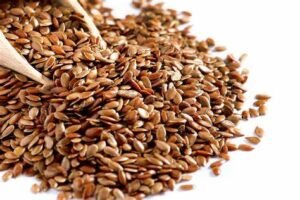
Per 100 grams, flax seeds boast:
| Calories: 534 |
| Protein: 18.3 grams |
| Dietary Fiber: 27.3 grams |
| Omega-3 Fatty Acids (ALA): 22.8 grams |
| Omega-6 Fatty Acids: 5.9 grams |
| Vitamin B1 (Thiamine): 30% of Recommended Daily Intake (RDI) |
| Vitamin B6 (Pyridoxine): 20% of RDI |
| Folate: 13% of RDI |
| Calcium: 26% of RDI |
| Iron: 31% of RDI |
| Magnesium: 98% of RDI |
| Phosphorus: 64% of RDI |
Chia Seeds: The Ancient Aztec Secret to Vitality “Flax Seeds vs Chia Seeds”
Chia seeds, derived from the plant Salvia hispanica, have a storied history as a dietary staple for ancient civilizations, including the Aztecs and Mayans. These small, black seeds are a nutritional powerhouse, offering an impressive array of nutrients, making them an excellent addition to any balanced diet.
Nutritional Profile of Chia Seeds
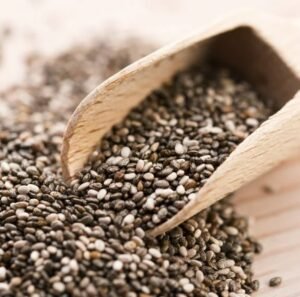
Per 100 grams, chia seeds offer:
| Calories: 486 |
| Protein: 16.5 grams |
| Dietary Fiber: 34.4 grams |
| Omega-3 Fatty Acids (ALA): 17.8 grams |
| Omega-6 Fatty Acids: 5.8 grams |
| Vitamin B1 (Thiamine): 15% of RDI |
| Vitamin B3 (Niacin): 8% of RDI |
| Folate: 8% of RDI |
| Calcium: 63% of RDI |
| Iron: 58% of RDI |
| Magnesium: 83% of RDI |
| Phosphorus: 60% of RDI |
The Key Differences: Flax Seeds vs. Chia Seeds
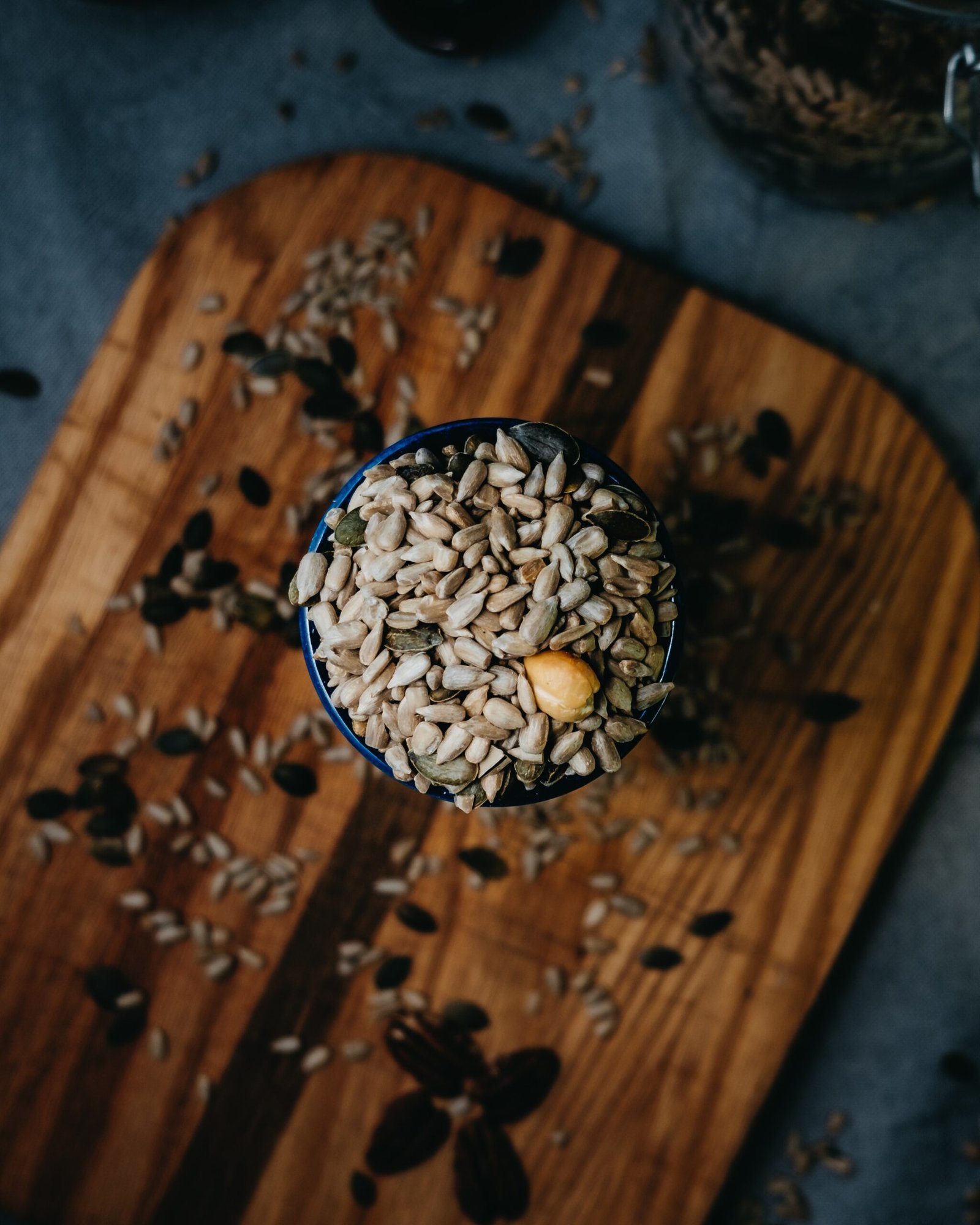
Omega-3 Fatty Acids Content “Flax Seeds vs Chia Seeds”
While both “Flax Seeds vs Chia Seeds” are rich in omega-3 fatty acids, flax seeds take the lead in terms of ALA content. This makes them an excellent choice for individuals seeking to boost their omega-3 intake.
Fiber Content “Flax Seeds vs Chia Seeds”
Chia seeds surpass flax seeds in terms of dietary fiber, promoting better digestion and prolonged satiety. This makes chia seeds an excellent choice for those aiming to manage weight or regulate blood sugar levels.
Micronutrient Profile “Flax Seeds vs Chia Seeds”
Flax seeds are notably higher in magnesium and phosphorus, essential minerals vital for bone health and overall metabolic function. On the other hand, chia seeds offer more calcium, making them an excellent choice for individuals seeking to fortify their bone density.
How to Incorporate Flax Seeds and Chia Seeds into Your Diet “Flax Seeds vs Chia Seeds”
Both flax seeds and chia seeds are incredibly versatile, making them easy to incorporate into various dishes. Here are some creative ideas:
- Flax Seeds:
- Blend into smoothies for an added nutritional boost.
- Sprinkle over yogurt or oatmeal for a crunchy texture.
- Use as an egg substitute in baking for a vegan-friendly option.
- Chia Seeds:
- Create a delicious chia pudding by soaking them in your choice of milk and sweetener.
- Add to homemade granola or energy bars for an extra nutritional kick.
- Mix into sauces or dressings for added thickness and nutrition.
In conclusion,
both flax seeds and chia seeds are nutritional powerhouses, each with its unique set of benefits. The choice between them ultimately depends on your specific health goals and dietary preferences. By incorporating these superfoods into your diet, you’re taking a significant step towards a healthier and more vibrant you.
FAQ: Exploring the Heartfelt Questions About “Flax Seeds vs Chia Seeds”
Q1: Which seeds are better for heart health – flax seeds or chia seeds?
A: Both flax seeds and chia seeds offer impressive heart-healthy benefits. However, if we were to choose a champion, flax seeds take the lead due to their higher content of alpha-linolenic acid (ALA), a type of omega-3 fatty acid known for its cardiovascular benefits.
Q2: Can chia seeds help with weight management?
A: Absolutely! Chia seeds are a phenomenal aid in weight management. Their high fiber content promotes feelings of fullness, reducing overall calorie intake. Additionally, the gel-like consistency they form when soaked in liquid contributes to a sense of satiety.
Q3: Are there any emotional benefits associated with consuming flax seeds or chia seeds?
A: Indeed, there are! Both flax seeds and chia seeds contain nutrients that support mental well-being. The omega-3 fatty acids in these seeds have been linked to improved mood and cognitive function. Moreover, the magnesium content in flax seeds and chia seeds plays a vital role in stress reduction and relaxation.
Q4: Can I use flax seeds and chia seeds interchangeably in recipes?
A: Absolutely! These seeds are wonderfully versatile and can often be used interchangeably in recipes. Whether it’s in smoothies, baking, or as a topping, you can experiment to find what suits your taste buds best.
Q5: How can I ensure the optimal absorption of nutrients from “Flax Seeds vs Chia Seeds”?
A: To maximize nutrient absorption, it’s recommended to grind flax seeds before consumption. This allows for better digestion and absorption of the nutrients they contain. For chia seeds, soaking them in liquid before consumption enhances their digestibility and ensures you reap the full nutritional benefits.
Q6: Can these seeds be beneficial for children?
A: Absolutely! Both flax seeds and chia seeds can be a valuable addition to a child’s diet. They provide essential nutrients for growth and development, including omega-3 fatty acids, fiber, and a range of vitamins and minerals.
Q7: Are there any potential allergenic concerns with flax seeds or chia seeds?
A: While allergic reactions to flax seeds and chia seeds are rare, it’s crucial to exercise caution, especially if you have known allergies to other seeds. If you experience any signs of an allergic reaction, such as itching, swelling, or difficulty breathing, seek immediate medical attention.
Q8: Can incorporating flax seeds or chia seeds into my diet improve my skin’s appearance?
A: Absolutely! The omega-3 fatty acids, along with the array of vitamins and minerals in both flax seeds and chia seeds, contribute to healthy, radiant skin. They help maintain skin elasticity, fight inflammation, and promote an overall youthful glow.
Q9: How can I store flax seeds and chia seeds to maintain their freshness?
A: To preserve the freshness of flax seeds and chia seeds, store them in an airtight container in a cool, dark place, such as a pantry. Keeping them away from heat and light will help maintain their nutritional integrity.
Q10: Can I consume flax seeds and chia seeds during pregnancy?
A: Absolutely! Both flax seeds and chia seeds are excellent sources of essential nutrients that are beneficial during pregnancy. However, it’s essential to consult with a healthcare professional for personalized advice and recommendations based on individual health circumstances.
Q11: Can I use flax seeds or chia seeds as a replacement for eggs in recipes?
Yes, you can! To replace one egg in recipes, you can mix one tablespoon of ground flax seeds or chia seeds with three tablespoons of water. Let the mixture sit for a few minutes until it thickens, and then use it as you would a regular egg in your recipe.
By incorporating these nutrient-dense seeds into your diet, you’re not only nourishing your body but also nurturing your overall well-being. Embrace the goodness of flax seeds and chia seeds for a healthier, happier you!
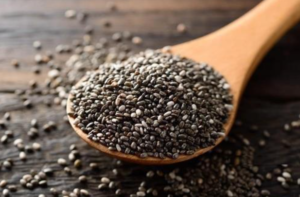 |
 |
important: Pros and Cons of Chia Seeds and Flax Seeds
Pros of Chia Seeds:
- Nutrient-Rich: Chia seeds are a good source of essential nutrients, including fiber, protein, omega-3 fatty acids, calcium, magnesium, and antioxidants.
- Weight Management: Chia seeds can absorb liquid and expand in your stomach, helping you feel full and potentially reducing overall calorie intake, which may aid in weight management.
- Digestive Health: The high fiber content in chia seeds supports digestive regularity and can help prevent constipation.
- Omega-3 Fatty Acids: Chia seeds are one of the best plant-based sources of alpha-linolenic acid (ALA), a type of omega-3 fatty acid that may have heart-healthy benefits.
- Blood Sugar Control: Some studies suggest that chia seeds can help stabilize blood sugar levels, which can be beneficial for individuals with diabetes or those trying to maintain steady energy levels.
- Hydration: When mixed with water, chia seeds form a gel-like substance that can help keep you hydrated during exercise or hot weather.
- Versatility: Chia seeds are incredibly versatile and can be added to a wide range of foods and beverages, including smoothies, yogurt, oatmeal, and baked goods.
Cons of Chia Seeds:
- Calorie Density: While chia seeds are nutrient-dense, they are also calorie-dense. Consuming them in excessive amounts without considering portion control could lead to excess calorie intake.
- Gastrointestinal Issues: Some individuals may experience digestive discomfort, such as gas or bloating, when they consume chia seeds without adequate hydration. It’s important to drink enough water when eating chia seeds.
- Allergies: Chia seeds are not a common allergen, but some people may be allergic to them. Allergic reactions can range from mild to severe, so it’s essential to monitor for any adverse effects when trying chia seeds for the first time.
- Phytic Acid: Chia seeds contain phytic acid, which can inhibit the absorption of certain minerals like calcium, iron, and zinc. Soaking or sprouting chia seeds can help reduce this effect.
- Omega-6 Fatty Acids: While chia seeds are a good source of omega-3 fatty acids, they also contain omega-6 fatty acids. An excessive intake of omega-6 fatty acids relative to omega-3s may not be ideal for some individuals.
- Cost: Chia seeds can be relatively expensive compared to other seeds or grains, which may limit their accessibility for some people.
Incorporating chia seeds into your diet can be a healthy choice, but like any food, it’s important to consume them in moderation and be mindful of any potential allergic reactions or digestive issues. Consulting with a healthcare professional or registered dietitian can help you make the best dietary choices based on your individual needs and preferences.
Pros of Flaxseeds:
- Rich in Nutrients: Flaxseeds are a nutritional powerhouse, packed with essential nutrients like fiber, protein, omega-3 fatty acids, lignans (antioxidants), vitamins, and minerals.
- Heart Health: The omega-3 fatty acids in flaxseeds, specifically alpha-linolenic acid (ALA), are associated with reducing the risk of heart disease by lowering cholesterol levels, blood pressure, and inflammation.
- Digestive Health: The high fiber content in flaxseeds supports healthy digestion, alleviates constipation, and promotes regular bowel movements.
- Cancer-Fighting Properties: Lignans in flaxseeds have antioxidant properties and may help reduce the risk of certain types of cancer, particularly breast and prostate cancers.
- Blood Sugar Regulation: Some studies suggest that flaxseeds may help stabilize blood sugar levels, making them beneficial for individuals with diabetes or those trying to manage their blood sugar.
- Weight Management: The combination of fiber and healthy fats in flaxseeds can promote feelings of fullness, potentially reducing overall calorie intake and aiding in weight management.
- Gluten-Free: Flaxseeds are naturally gluten-free, making them a suitable addition to gluten-free diets.
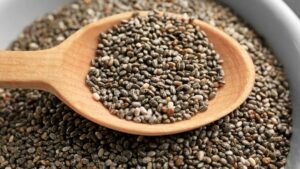
Cons of Flaxseeds:
- Digestive Discomfort: Some individuals may experience digestive issues like bloating, gas, or stomach discomfort when consuming flaxseeds, especially if not consumed with enough water. It’s recommended to start with small amounts and gradually increase intake.
- Potential Allergies: Although rare, some people may be allergic to flaxseeds, leading to allergic reactions. If you have a history of seed allergies, it’s advisable to exercise caution when trying flaxseeds.
- Anti-Nutrients: Flaxseeds contain compounds like phytic acid, which can bind to minerals and reduce their absorption. Soaking or grinding flaxseeds can help mitigate this effect.
- Omega-6 Fatty Acids: While flaxseeds are a good source of omega-3 fatty acids, they also contain omega-6 fatty acids. Balancing the intake of these fatty acids is important for overall health.
- Short Shelf Life: Ground flaxseeds can go rancid relatively quickly due to their high oil content. Storing them in an airtight container in the refrigerator can help prolong their shelf life.
- May Interact with Medications: Flaxseeds can interact with certain medications, particularly blood thinners and some hormone therapies. If you’re on medication, consult with your healthcare provider before adding flaxseeds to your diet.
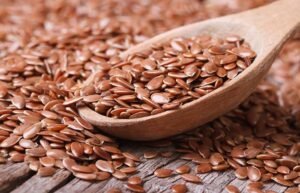
Overall, flaxseeds are a nutritious addition to a balanced diet and offer a wide range of health benefits. However, as with any food, it’s important to consume them in moderation and be mindful of potential allergies or digestive sensitivities. If you have specific health concerns or conditions, consult with a healthcare professional or registered dietitian for personalized advice.